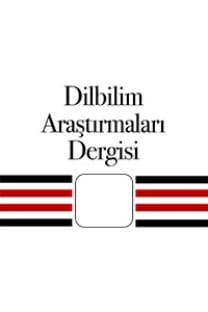Çoktan Belirtecinin Anlamsal Özellikleri Üzerine
This paper discusses the semantics and pragmatics of the adverb çoktan 'already' in Turkish. The basic argument is that çoktan seems to express three closely related temporal/aspectual concepts, namely (i) (relative) temporal anteriority, (ii) (subjective) temporal distance and (iii) realized change of state. It is also illustrated that there is cooperation among Turkish aspectual adverbs daha şimdiden, zaten, bile and çoktan in sharing amongst themselves the multiple (temporal and non-temporal) meanings borne by the English 'already and the German 'schori. It is suggested that this behavior of Turkish may derive from the underspecified tense/aspect/modality marking on the predicates which requires recourse to highly specific adverbs for a proper aspectual interpretation. In contrast, in languages where tense/aspect/modality morphology is unambiguous, the adverbs might be polysemous, and thus capable of expressing various temporal and non-temporal meanings depending on the morphology with which they co-occur.
___
1. Aksu-Koç, A. (1988). The Acquisition of Aspect and Modality: The Case of Past Reference in Turkish. Cambridge: Cambridge Univ. Press.2. Cinque, G. (1999). Adverbs and Functional Heads: A Cross-Linguistic Perspective. Oxford:Oxford University Press.
3. Erguvanlı-Taylan, E. (2001). On the relation between temporal/aspectual adverbs and the verb form in Turkish. E. Erguvanlı-Taylan (haz.), The Verb in Turkish, 97-128,Amsterdam: John Benjamins Publishing Company.
4. Fong, V. (2003). Unmarked already: Aspectual expressions in two varieties of English. 1-16.(http://www.semanticsarchive.net adresinde)
5. Güven, M. (2004). Adverbials in Turkish: The third parameter in aspectual interpretation. Yayımlanmamış dilbilim doktora tezi, Boğaziçi Üniversitesi.
6. Hoepelman, J. & Rohrer, C. (1981). Remarks on noch and schon in German. P. Tedeschi & A. Zaenen (haz.), Syntax and Semantics, 14: Tense and Aspect, 103-126. New York: Academic Press.
7. Michaelis, L.A. (1996). Cross-world continuity and the polysemy of adverbial still. G. Fauconnier & E. Sweetser (haz.), Spaces, Worlds and Grammar, 179-226. Chicago: Univ. of Chicago Press.
8. Smith, C. (1997). The Parameter of Aspect. Dordrecht: Kluwer Academic Publishers.
9. Traugott, E. C. & Waterhouse, J. (1969). 'Already' and 'yet': a suppletive set of aspect-markers? Journal of Linguistics 5, 287-304.
10.Kerslake, C. (1996). The role of connectives in discourse construction in Turkish. A. Konrot (haz.), Modern Studies in Turkish Linguistics: Proceedings of the 6th International Conference on Turkish Linguistics, 77-104. Eskişehir: Anadolu Üniversitesi.
- ISSN: 1300-8552
- Yayın Aralığı: Yılda 2 Sayı
- Başlangıç: 1990
- Yayıncı: Dilbilim Derneği
